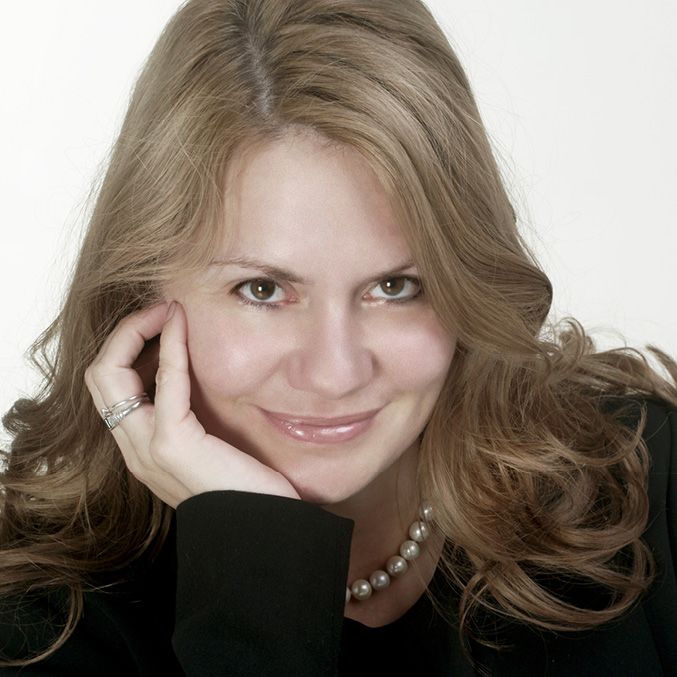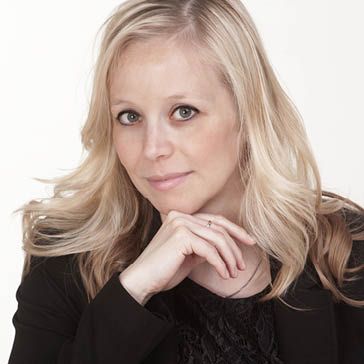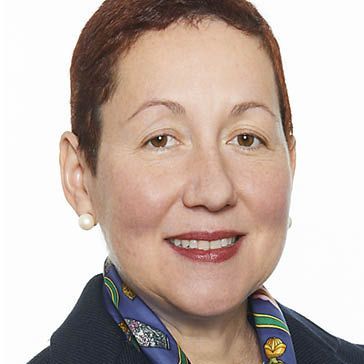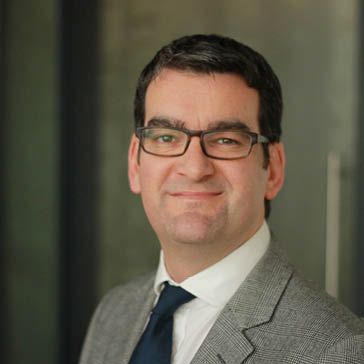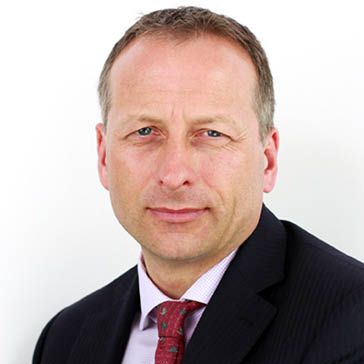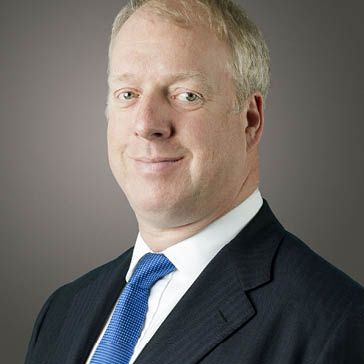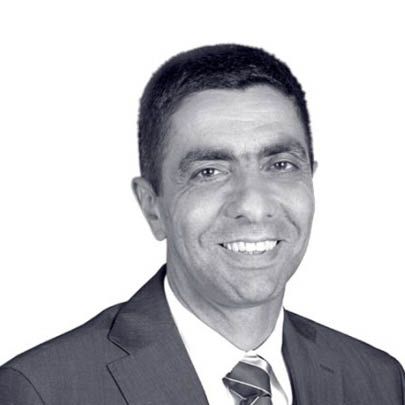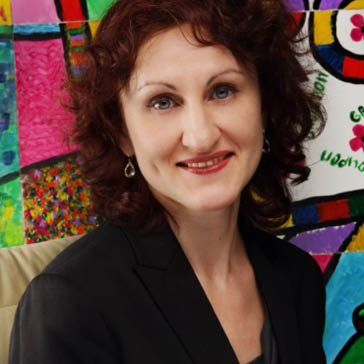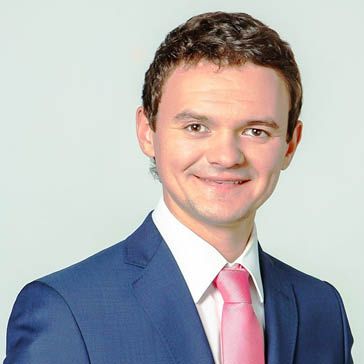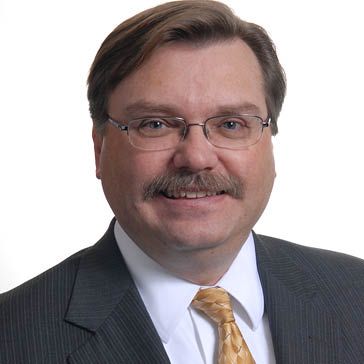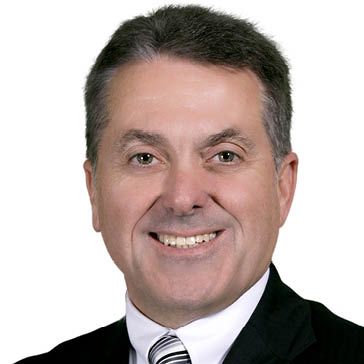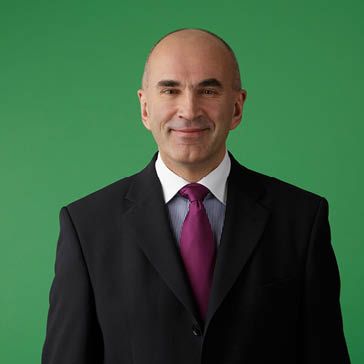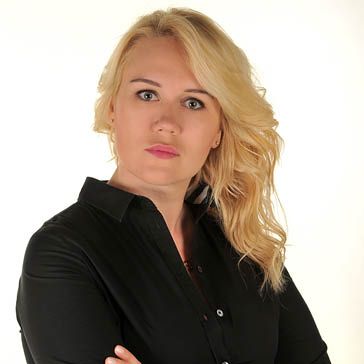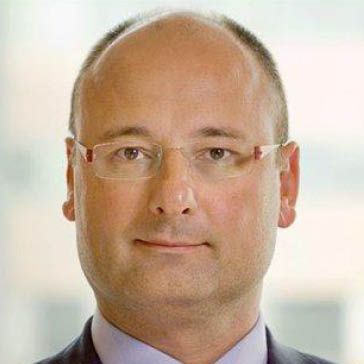Doran Doeh is a Partner in Dentons’ Moscow office and a member of the firm’s global Energy practice. He has been working in and with Russia since 1991, first with Allen & Overy, where he was the Managing Partner in Moscow for many years, then since 1999 with Dentons, and in its previous iterations (Denton Hall, Denton Wilde Sapte, SNR Denton), he also served as Managing Partner in Moscow. Doeh is a well-established and widely recognized Energy/Natural Resources expert in Russia, and he is commonly listed among the preeminent practitioners in the market.
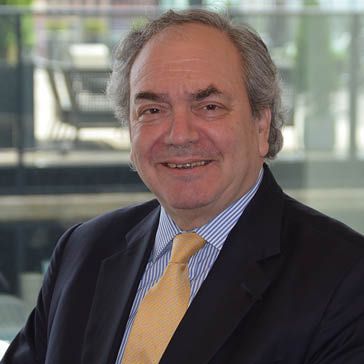
Doran Doeh, Partner, Dentons
CEELM: To start, how and where did your legal career begin — and how did you end up in Russia?
D.D.: I wanted to be a lawyer from a young age (around 10). It wasn’t the only option – being an actor (like Charlton Heston) or a journalist/writer (Ernest Hemingway) also appealed to me. I also considered becoming a businessman, like my father. But like all of the other possible careers, I worried ultimately that I would not be good at them, whereas I never had any doubt that I could be a good lawyer. I also worked out that in a lawyer’s career it would be possible (as indeed I have found) to combine all the other things I liked doing and make a reasonably good living too.
CEELM: How did you end up in Russia?
D.D.: Well, I started in America but soon longed for European civilization (the Hemingway/Scott Fitzgerald/ T.S. Eliot bug). I did a liberal arts degree at Dartmouth College, then decided that Oxford would suit me, because (this was the late 1960s) it was so deliciously decadent – you could live in very old buildings and have servants – and have one-to-one tutorials. (Yes, Joseph Losey’s film The Servant was an inspiration. Even more so was his film Accident, which was actually shot at St John’s, my old college at Oxford). Having done history as a major at Dartmouth, I read philosophy, politics and economics (PPE) at Oxford – I thought I was far too young to start such a serious subject as law.
I had a year with nothing to do when my number came up for the draft lottery during the Vietnam War (fortunately, they never got round to actually calling me up, or my life would have been a lot different) so I spent a year running luxury tours in Morocco. (Sometimes I muse that I am still doing the same job – showing foreigners around an exotic country.) My father thought I was on the road to ruin, so he called me up and suggested that since I liked the old world, why didn’t I think of getting qualified in England, as he had heard they had good lawyers there. That seemed like a good idea, so I joined Lincoln’s Inn and qualified as a barrister.
It was only when I found a place as a tenant in a set of chambers, 4 Stone Buildings, that I realized that financially it would be a long hard struggle at the Bar. Arguing my case to a dry old judge was not my idea of heaven on earth (now, of course, I would take a different view) – I was much more interested in the cut and thrust of commercial transactional work. At the time North Sea oil was emerging and often featured in the press. So, I found myself a job in the North Sea oil industry. I joined Burmah Oil (North Sea) Limited virtually on the day that it was announced that it would be taken over by The British National Oil Corporation (BNOC). Most importantly for my long term future, BNOC was at the centre of development of the legal documentation that underlay the workings of the North Sea oil industry, and over time these forms became global standards for the industry as a whole. I enjoyed the feisty interaction with other lawyers in the industry – I had to learn how to balance assertion with diplomacy and to reach effective compromises in tough negotiations, a great advantage in a commercial legal career.
Eventually I was one of the key members of the team that privatised BNOC and floated Britoil. That was a great experience which taught me a huge amount about how the political and business worlds interacted in British society, and the lessons are ones that I have been able to apply throughout my career including in Russia.
I joined Allen & Overy as an oil and gas specialist in 1986, the year the Financial Services Act came into effect. I published an article on how the FSA affected oil trading, and the partners at A&O decided that I must be a wizard at financial services regulation, and they invited me to join the team of three that advised the whole firm on the FSA. It is amazing how much you learn about an industry when doing the regulatory side of it – what people are supposed to do, what they are not supposed to do, how they do both kinds of activity and what can happen when they transgress. I dealt with banking, as well as financial services, regulation – all in addition to my work as an oil and gas lawyer.
When A&O started their Central and Eastern Europe practice after the Berlin Wall came down in 1989, I was the one interested in Russia. This was partly because it was the great oil and gas producer of the region. However, I had also done a fascinating course in 19th century Russian literature when I was at Dartmouth, and my father’s family had come from Russia around the time of the Russian Revolution. Although they escaped as refugees, my father retained a deep sympathy for Russia that I also inherited. I used to tell people that I hated communism and had no interest in the Soviet Union but loved Russia. I was part of the team that set up the A&O office in Moscow in 1993 and, for my efforts, I was appointed head of the office in 1995 – which is how I ended up in Russia.
CEELM: What is your role, exactly, in Dentons? Does being an expat in the Moscow office involve different responsibilities than the Russian partners have?
D.D.: I was head of the Denton Wilde Sapte/SNR Denton Moscow office for twelve years. That is about the maximum that anyone should do a senior role – one of the lessons of Margaret Thatcher’s and John Browne’s experiences is to move on while the going is good. I have to admit that it is a great relief to no longer to be responsible for management issues – such as overseeing budgets and other partners’ performances– and I am having a great time in the new combined Dentons.
An important part of my current role is on the integration of the two Moscow offices resulting from the combination of the SNR Denton and Salans practices in Russia. This has proved to be much smoother than I had anticipated. The partners are delightful and we all have a lot in common, not least our aspirations for our firm and office. We now have the largest international law firm presence in Russia, including the St Petersburg office, and the most extensive network of offices in the CIS.
Another part of my job is to boost the development of the oil and gas practice. I was well known as an oil and gas practitioner in London before I came to Russia and developed a similar reputation when I was here with A&O in the ‘90s. I returned to London after the Russian crash in 1998, and joined, what was then, Denton Hall to become more focused on pure energy work – in that field, the firm was then streets ahead of any other firm. It had an extraordinary roster of partners who were energy lawyers recognized by the legal directories – and I took my place among them. After the experience of A&O, which as a firm was so focused on finance, it was great to be back in the energy sector, and at the highest level. Dentons did not hire me to be a Russia specialist, but when there were problems with the Moscow office in the early ‘00s, they asked me to go back to Russia on a temporary basis to head up the office. As they say, there is nothing so permanent as the temporary, as I found out. I took the view, based on my earlier experience, that to build a viable office we needed much more than just an oil and gas offering and put my back into developing the banking and finance practice. Banking transactions were never my mainstream work, but I had to cope with a few of them at A&O! My earlier experience as a financial services and banking regulatory lawyer (plus a long term interest in finance from my PPE days) enabled me to “walk the walk and talk the talk” with bankers.
Today, as part of the much larger combined Dentons office, I leave the banking partners to get on with their practice and I have reverted back to my original role as an oil and gas partner. I am delighted to say that this is really going well. I have attracted a good volume of work, including some very interesting, cutting edge and challenging deals.
As an expat and experienced oil and gas practitioner working with a large team of energetic and ambitious younger partners whose practices focus on other areas, I am often called in to deal with matters where my specialist skills are needed. This applies not only to my Russian colleagues – but also to the American, French and German partners as well – and an important part of my offering is not just oil and gas expertise but also my background as a London practitioner. English law has become the currency of international legal business in a way similar to that of the US dollar in international financial affairs, and having a senior practitioner such as myself on board provides a degree of assurance to clients.
CEELM: What were the main challenges you faced when starting to work in Russia, and are those the same challenges you face today?
D.D.: When I first started working in Russia, it was almost impossible to find locally qualified people who could function effectively in an international law firm. There were very few Russian lawyers who could speak English fluently and of those who could, even fewer had the grasp of commercial and financial affairs at the sophisticated level that was needed. To build an office, we had to hire the best people we could find and closely supervise their work. Finding the best talent was difficult – the recruitment agents who do this as a matter of course nowadays were non-existent at the time – and, given that they were coming from such a different background, managing them was tricky. “Never assume” was a good rule of thumb, but to do that you had to work out what your assumptions were, and that was not easy in country where the normal ways of conducting business were so completely different to those in the western world. In addition, it was important to get to grips with Russian law.
To make the situation even worse, in the early days Russian law itself was inaccessible. When I first came to Russia, there was no standard system of publication of the laws, and many of them would just appear in the newspapers. I used to go around with a Russian lawyer on our team who, whenever he met another Russian lawyer, would offer to exchange copies of newspaper clippings. Fortunately, the new Russian constitution provided that the laws are not valid until published, and this required the Russian government to establish a system for publication of laws. Because old-fashioned printing of publications was so problematic in Russia, the systems normally used in the West were soon superseded by state-of-the-art electronic databases that became very sophisticated. It was then a relatively short step for the providers to publish translations of the main laws – otherwise getting translations, which were essential for a law firm in order to prepare legal work of the quality required, would have been a major problem.
There was also the problem that the legal system was almost totally unsuitable for late 20th century business – the Fundamentals of Civil Legislation of the Soviet Union was a nightmare to deal with – and often laws were mutually contradictory or had very significant gaps. Over time, this was remedied by a complete overhaul of Russian law.
Fortunately, all the international firms had similar problems and there was a degree of camaraderie and mutual assistance between competitors in Moscow that would have been unthinkable anywhere else.
The situation now is totally different and unrecognizable from what it was in the early ‘90s. Russian law has been very effectively revised and modernized based on German, Netherlands and Swiss precedents. There are now lawyers at all levels of seniority who have been developed by the international law firms. In addition, lawyers in some leading local firms have picked up know-how from international firms and are able to produce work in certain practice areas to the necessary standard. So the legal scene in Moscow is becoming much more what one would expect in the capital of a big country, with a mixture of local and international firms in the market. University students now graduate having learned the basics which enables the firms to train them up in a way that was inconceivable 20 years ago.
CEELM: How do you think your career was affected by the decision to move outside of the UK?
D.D.: Your question reminds me of the Robert Frost poem about two roads diverging in a wood. I have been lucky, in that I have been able to keep in close contact with London throughout my time in Moscow, thanks to the firms I have worked for. So I have been able to remain as much an English practitioner as a Russia-based one. It is only in recent years that I have become more fully and permanently based in Moscow, and this is partly a deliberate choice because, as Russia has developed and my own career progressed to a the level of seniority that I am now at, this seemed most appropriate. I think that I have probably attained greater recognition having done what I have than had I remained wholly based in the UK, but – as in Robert Frost’s poem – one never finds out what might have happened had one chosen the other path.
CEELM: What have you identified, over the years, as the unique cultural aspects to keep in mind as an expat working in Russia?
D.D.: In certain ways, the Russians and the British are very similar. They are both outsiders to the main stream of European civilization – not surprising given that they live at the outer edges of Europe. Russians and British alike can be very reserved with strangers but become warm and hospitable once they get to know people. However, in both Russians and British there is an unfathomable something – a way of going about doing things – that makes their culture distinctive.
With Russia, it is extraordinary how much of Russian culture is borrowed from others – music, ballet, forms of literature, architecture, painting – but somehow they Russianize it and then it seems wholly Russian, not borrowed at all. The best example I can think of is communism – ideas developed by a German Jew working in the British Library in London became the basis for ruling the entire, vast Soviet Union and were wholly internalized by its rulers and peoples.
What seems the cultural essence of any particular moment in Russia changes over time and metamorphosizes into something else. It is part of what makes Moscow such an exciting place to be.
CEELM: In general terms, how do you think the lawyers in Russia compare with those in the more established legal markets of the UK or US? Have you seen improvement in the market since you arrived? Are there particular areas they need to improve even more?
D.D.: My colleagues are all excellent lawyers and very commercial in their approach, so I don’t have the problems that I hear about from other people. As I said before, there has been a vast improvement over the past 20 or so years – like night and day – although it is possible that our firm has been more effective at developing our people than some of the others.
Where there is room generally for improvement is simply in Russian lawyers having more confidence in themselves – there is a tendency to think foreigners do things better. It is true that the English legal profession has the advantage that their law is the default choice for international transactions, but that does not mean they are necessarily better lawyers, cleverer or more appreciative of client needs. The top Russian lawyers in international practice (and I include in this partners in the top local firms) can hold their own with anyone.
Probably what is needed is a sense of esprit de corps, of being part of a profession. That is held back by the fact that, apart from advocates, the legal profession is unregulated in Russia. There have been government efforts to establish a regulated profession, but there has been strong resistance from the leading private practitioners. I can understand the reasons for this and would not seek to impose something that so many distinguished lawyers think is inadvisable in their country.
CEELM: On the lighter side, what is your favorite spot in Moscow and why?
D.D.: It is hard to beat Red Square as a colossal, impressive sight. I have experienced it in many different circumstances over the years including all times of day and night, summer or winter. For a brief period after the combination with Salans and before we moved to our wonderful new office near Belorusskaya station, I walked through Red Square every morning and evening on the way to/from work. I have had the privilege of seeing it from inside the Historical Museum looking out through the massive doorway that frames St. Basil’s as you look out. I have experienced the military tattoo in Red Square, with bands from armies from all over the world marching. The tattoo ends with Tchaikovsky’s 1812 overture and bells and canons of the Kremlin chiming and booming. It’s quite a spectacle!
